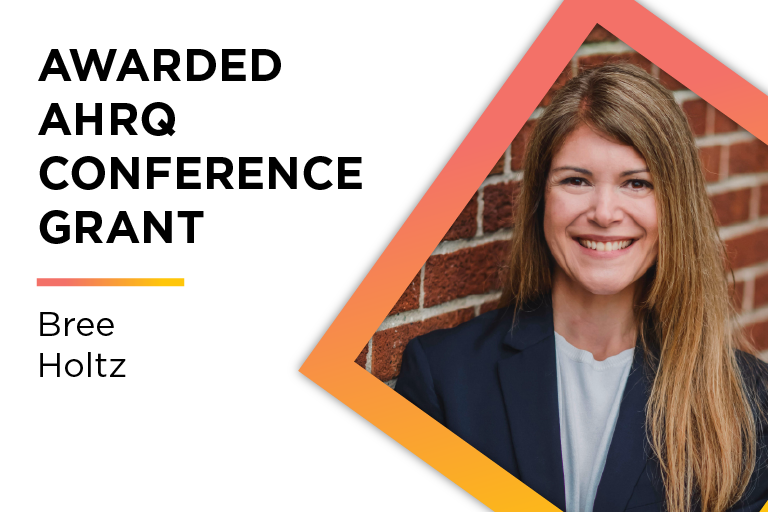Associate Professor of Advertising and Public Relations Bree Holtz has recently received a prestigious conference grant from the Agency for Healthcare Research and Quality (AHRQ), a lead federal agency aimed at improving the quality and safety of healthcare for Americans.
This grant will provide Holtz with funding to organize a think tank where decision leaders from health systems, physician groups, researchers, patient advocates, tech groups, insurers and policy makers from Michigan can gather to discuss best practices for providing high-quality telehealth care and policy changes that will support equitable access to safe and efficient healthcare.
Telemedicine and telehealth have been around longer than we might anticipate, according to Holtz. But the popularization and implementation of telehealth practices really occurred during the COVID-19 pandemic. Due to the rapid demand and rollout of telehealth, there wasn’t much of an incubation period to disseminate best practices and administer quality healthcare virtually.
“This highlighted the need for a dedicated forum to address these challenges, formalize strategies, and enhance telehealth service quality,” said Holtz.
With the help of Kelly Hirko, assistant professor of epidemiology and biostatistics at Michigan State’s College of Human Medicine, and Sabrina Ford, an associate professor in the Department of Obstetrics, Gynecology, and Reproductive Biology in the College of Human Medicine, Holtz developed the idea for this think tank. They established that this think tank would be a space to gather these decision leaders to discuss the quick shift of providing telehealth to patients during the pandemic, and what can be done going forward to improve that system and set best practices.
“What is unique about this one is that we are targeting 40ish decision-makers and leaders, and it will be focused on Michigan. However, we will have a national dissemination of our findings,” said Holtz.
Holtz believes that sharing the insights, concepts, and practices gathered at the think tank with a nationwide audience is crucial to this process. First, the team will conduct and write a literature review that will be shared with the invitees where they will be able to provide any feedback or suggestions. From that information, the team will develop blog posts for each theme and share them with a wider audience.
Before the event, the team will develop a conference website to share information about the think tank and its outcomes with key stakeholders in telehealth. Additionally, they will publish an overall meeting summary with six papers in a special edition of the journal Telemedicine and e-Health on the website. Policy briefs will also be developed to shape and influence policy decisions regarding telehealth access.
Finally, they will hold speaking events presenting findings from the think tank at represented organizations regionally and nationally.
“Receiving this grant signifies a recognition of the value and importance of the work surrounding telehealth,” said Holtz. “It acknowledges the challenges we’ve observed in implementing and using telehealth and the inequities we witnessed during COVID. It also demonstrates a desire to overcome them by sharing knowledge, best practices, and innovative solutions.”
Holtz has been a faculty member of the College of Communication, Arts and Sciences since 2012. Her research sits at the intersection of health communication, information communication technologies and the promotion of healthy behaviors through persuasion. This focus helps her explore the adoption, perceptions and outcomes of telemedicine, mobile phone health applications, consumer grade sensors (e.g., Fitbit, Apple Watch, etc.), electronic medical records, artificial intelligence and social media for health topics.
Her goal in her research is to help improve health outcomes and individuals’ quality of life, which is also represented in the overall idea of the Think Tank.
“I’m looking forward to this think tank,” said Holtz. “We’re gathering some of the brightest minds in Michigan to brainstorm and come up with tangible solutions for telehealth’s future, especially as we navigate the post-pandemic world. Ultimately, my team and I aim to roll out the insights from this conference nationally. We’re hopeful this will pave the way for better healthcare access for everyone in America.”
This event will take place in August 2024.
By Casey Halas
